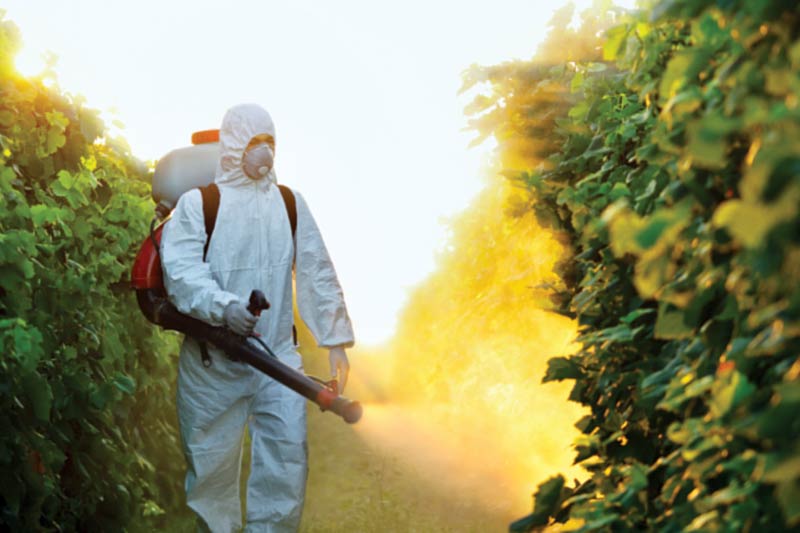Phytosanitary products are basically pesticides which are mainly used to increase crop production and prevent them from being destroyed by diseases. They include herbicides, fungicides, insecticides, acaricides, plant growth regulators and repellents, that’s the theory.
The reality is that the use of pesticides It is a threat to biodiversity, water and health, something that people now seem to forget. President Von der Leyen. Some agricultural sector protests They are legitimate, but they cannot mean the elimination of environmental legislation. Some studies suggest that the use of pesticides In the EU it costs up to 2.3 billion euros annually.
“Inadmissible and clearly harmful”this is how Greenpeace qualifies the announcement of the President of the European Commission, Ursula Von der Leyento withdraw part of the European legislation that sought to reduce the use of pesticides in agriculture, to silence one of the demands of the agrarian protests.
For Greenpeace, it is It is inconceivable that the first measure of supposed “support” for the agricultural sector after its protests would paradoxically consist of poisoning the countryside. ““These types of advertisements contribute to the discredit of our agriculture instead of protecting it.”says Helena Moreno, head of agriculture at Greenpeace. “We understand and support numerous demands from the agricultural sector; That’s why we don’t understand why they want to give them this poisoned gift.”has added. “This announcement is not support for farmers, suffocated by the difference in prices between production and sale or by unfair competition, but rather “a gift for the agro-industrial lobby”he concludes.


According to the environmental organization, Pesticides are a serious environmental problem, both for biodiversity and for the contamination of soil and water. But they are also a problem for the health of farmers and a threat to the producers’ business model, due to the strong rejection they generate among consumers.
Greenpeace recalls that some studies point out the enormous cost, not only social and human, but also economic, of these substances in European agriculture. These sources point to a annual cost of about 2.3 billion euros – disease treatment, water decontamination, subsidies received by pesticide manufacturers, tax exemptions, etc.
This cost is more than double the benefits business in this sector, of around 900 million net in the EU. Specifically, in Spain, the current food system, so dependent on pesticides, has hidden health, environmental and social costs that were estimated at around 150 billion dollars in 2020 (according to the latest FAO study of 2023 ), and which is approximately equivalent to total public spending on Health and Education in one year. The largest hidden cost being health, of 115,000 million (more than health spending of 95,000 million).
The agrochemical lobby spends a fortune influencing the political agenda of European institutions
Furthermore, the agrochemical lobby spends around 10 million euros annually influencing the political agenda of the European institutions, and specifically, Spain was the EU country that used the most pesticides in 2020, with 75,774 tons, according to a recent study by Friends of the Earth. According to UN data, throughout the world, the use of pesticides causes 385 million cases of unintentional poisoning each year and farmers are the main victims, with about 11,000 deaths annually.
““Pesticides are a very serious problem for biodiversity, their effects persist in the environment and reduce opportunities for more sustainable agriculture, such as the application of biological pest control,” Helena Moreno, head of Greenpeace’s agriculture campaign, has declared. “This crisis in the countryside will not be solved by eliminating the current minimum environmental standards. There is no agriculture without biodiversity. And without a healthy environment, there will be no agriculture in the short, medium and long term.”
Greenpeace demands that Europe invest, politically and economically, in driving a transition towards a food and agricultural system that works with nature and not against it, in which all farmers earn a fair income for their work and that is facilitated and support this transition towards agroecology.

